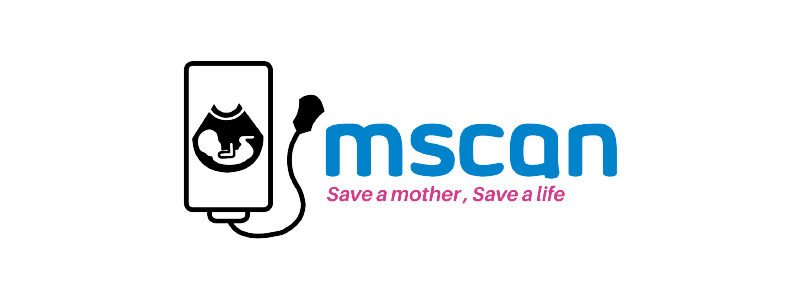
Developers of low cost portable ultrasound devices that are laptop, tablet and mobile phone compatible.
Introduction
M-SCAN aims at reducing maternal mortality through early detection of complications arising in pregnancy using M-SCAN devices.
The current maternal mortality rates stand at 16 mothers daily. Most of the mothers die of complications arising in pregnancy. Most of these complications such as placenta previa, cord around babies neck, can be detected on ultrasound, however, health facilities cant afford the traditional ultrasound machines that are very expensive and use a lot of power.
As such, M-SCAN is providing ultrasound devices to such resource limited settings mainly through three channels; availing the M-SCAN devices directly to clinics and hospitals in the rural facilities, scanning pregnant women at medical camps in rural Uganda, training frontline health workers in basic obstetric ultrasound. We these well implemented, we plan to contribute to lowering unnecessary maternal deaths.
Progress and Results
M-SCAN was started after seeing the plight of pregnant mothers in rural Uganda with many dying of undetected complications in pregnancy. With the power of M-SCAN, the goal was to aid early detection of risk factors of maternal health, have mothers intervened early and their lives and those of the babies saved.
From incorporation in July 2017, M-SCAN through seed funding from UNFPA was incubated at Outbox Hub under the Upaccelerate programme. We managed to develop an MVP (Minimum Viable Product).
In 2018, we outsourced manufacture in China and developed a more robust prototype that was able to scan in real time and visualize internal organs to include the fetus for pregnancy.
So far, we have deployed an M-SCAN device at Kalangala Health Center IV, one of our pilot sites. The machine generates data that we compile and analyze. This informs us on the utility of the device, it’s effectiveness and specificity in detecting complications.
On the same note, we have carried out more pilots in districts of Kampala, Jinja, Karamoja, Bukwo, Buyende, Mubende where a total of 532 pregnant women have been scanned, with over 88 complications detected.
M-SCAN has also worked on a data management software that feeds into the scanning software to make reporting easier. This helps in following up patients with complications.
We have research that has gotten approval from Mulago Institutional Review Board – Mulago hospital. Results from the research will help to further validate the M-SCAN devices.
Challenges and Lessons Learnt
The approval process is very slow, however conducting local research is the best approach to acquire approvals from necessary regulatory bodies.
Not many frontline health workers can perform ultrasound, training is a key enabler to sell more machines, we currently partnering with Infectious Disease Institute to offer training services.
The myth that VHTs and midwives find smart technology difficult to use has been dispelled in this project; with minimal support, all users were able to use the phone and report quality data. However, Uganda still faces challenges of reliable ICT infrastructure. This is mitigated by enabling users to find spaces where there is connectivity at the time of data transmission and update. There have been some cases of poor handling and damaged phones which caused cases of non-reporting. GetIN was developed using SANA, a new technology in the Ugandan market and therefore difficult to find developers. The project has embarked on rebuilding the applications while continuing to seek support from MIT who have always supported the project.

